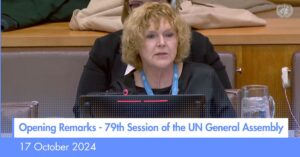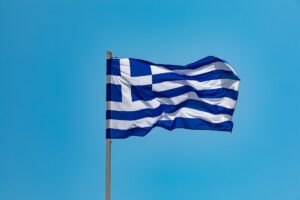The following is based on a communication written by the UN Special Rapporteur on Human Rights Defenders and other UN experts to the Government of Malaysia as well as the company ‘Samling Group’ on 29 August 2022. The communication remained confidential for 60 days before being made public, giving the Government time to reply.
The Government of Malaysia sent a short reply on 9 September 2022, saying that the matter was undergoing due legal process in the country. The Government did not reply to the questions put to it by the UN Experts in the letter. On 15 September 2022*, a response was sent by Samling Plywood (MIRI), in which they contested the characterisation of the claim brought by the company against SAVE Rivers as a SLAPP suit.
Below is a shorter version of the original communication.
BACKGROUND
Topic: alleged strategic lawsuit against public participation launched against the human rights organisation SAVE Rivers.
SAVE Rivers is a grassroots NGO based in Sarawak, Borneo. Since 2011, they have been working with rural communities to protect land, rivers and watersheds from environmental damage, as well as to prevent damage to biodiversity and support indigenous peoples in the defence of their rights. They promote sustainable development and community-led conservation efforts. Messrs. Peter Kallang, Mark Bujang, Thomas Jalong Apoi and Ms. Caroline Mbang Nyurang are Directors of the organisation.
ALLEGATIONS
Samling Plywood (MIRI) SDN BHD and Samling Plywood (BARAMAS) SDN BHD are private limited companies incorporated in Malaysia. Their business is the extraction and sale of timber and the manufacture of plywood. Both ultimately form part of the Samling Group of Companies. On 2 July 2021, the two companies submitted a claim to the High Court of Sabah and Sarawak at Miri for loss and damage resulting from alleged defamatory statements madeagainst them by SAVE Rivers. The plaintiffs claimed that seven articles published by the NGO on its website between 23 June 2020 and 10 March 2021 had affected their business and commercial relationships.
In the articles in question, SAVE Rivers reported on concerns of members of indigenous people’s communities affected by the Gerenai Forest Management Unit (FMU), a 148,000 hectare logging concession awarded to the Samling Group in the rural Baram region of Sarawak, and promoted an online petition calling for a halt to the project. The concerns relayed in the articles related to the certification granted to the project under the Malaysian Timber Certification Scheme (MTCS), a process operated by the Malaysian Timber Certification Council (MTCC) and endorsed by the Programme for the Endorsement of Forest Certification (PECF), an influential international certification body.
The articles reported indigenous people’s community concerns that the certification process for the FMU had been rushed through while restrictions were in place to combat the Covid-19 pandemic, and that any consultation undertaken had been inadequate to offer an authentic opportunity for indigenous people’s communities to give or withhold their free, prior, informed consent. They further elaborated concerns that indigenous people’s communities opposed to logging had been excluded from the consultation process entirely, that the complaints system under the MTCS was opaque, ineffective and disempowering, and that the Samling companies had been engaging in illegal logging in the communities.
In filing their claim, the companies requested general damages of RM 5,000,000 (approx. 1.12 million USD as of August 2022), aggravated damages to be assessed by the court, and an order for the defendants to retract the articles in question and publish an apology approved by the companies. The companies also sought an injunction restraining SAVE Rivers from publishing any similar statements concerning them in the future, along with legal costs. The case is expected to come to court in 2022.
As a result of the action filed by the companies, the dispute resolution process within the MTCC, activated in May 2021 after a complaint was made by the indigenous people’s communities, stalled. In August 2021, the MTCC’s Dispute Resolution Committee informed the indigenous peoples that they were unable to deliberate on the substantial detail of the case as a result of the companies’
legal claim, due to the perceived risk of being deemed to interfere with the lawsuit. In October 2021, the indigenous people’s communities submitted a formal complaint to the PEFC, however, the umbrella-body cited the unfinished investigation of the MTCC as a barrier to it carrying out its own investigation into the case.
CONCERNS
In the communication we expressed our concern that the legal action brought against SAVE Rivers by the companies may amount to an instance of strategic litigation against public participation, also known as a SLAPP. Such manifestly unfounded lawsuits are typically launched by private actors against human rights defenders and others who exercise their right to freedom of expression to raise concerns about corporate activities. The purpose in such cases is to silence criticism and deter future opposition to a company’s projects through intimidation. Where such suits occur, businesses exploit the power imbalances that exist between companies and human rights defenders, leaning in particular on the substantial financial disparities between the parties, given the costs of fighting such cases in court and the size of the damages often sought.
*At the time of the original posting of this article, the Special Rapporteur and her team had not received the response from the company, which was sent by Samling on 15 September 2022. The statement indicating that the company had not responded at the time of the original post has been corrected in the current version of this article.



